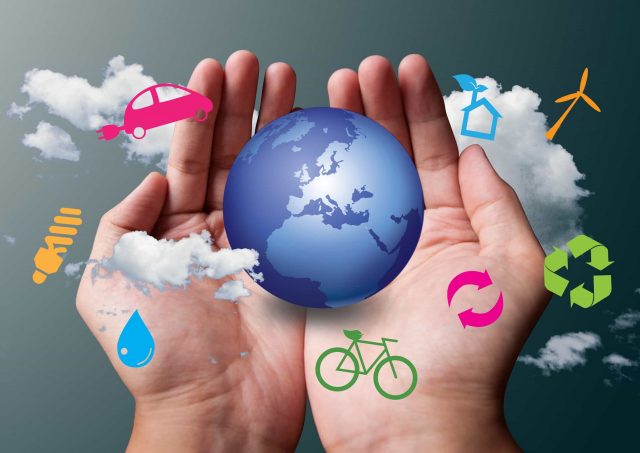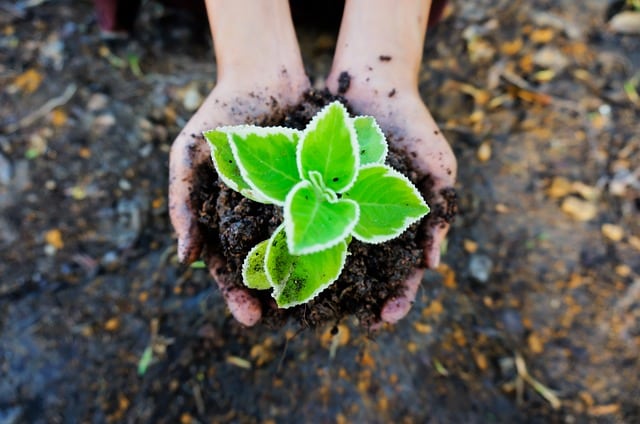Zero waste entails a set objective set by an individual(s) or organization(s) to ensure the absence of materials which can become waste or that lead to resource wastage. It follows that for this to be possible, there is need to remodel the waste by using them as useful resources. That is, reverting back to the original source of materials to tackle the waste from the very beginning by managing the resource and all the processes therein that lead to production to ensure no wastage is realized.
One major concern is that the growth of population in the world is faced with a predicament of not having a subsequent growth in resources in the environment. For this reason, the conversion of waste to be reused is a plus. In a bid to accomplish this initiative, it should start at home where resources can be managed with ease. This article seeks to enlighten on 20+ simple and easy ways to go zero waste at home.
1. Use of bamboo toothbrushes. It is common health know how that a toothbrush ought to be used once every 3 months. In as much as this is a boost to personal hygiene, it also means that in every 3 months, a toothbrush is disposed of which leads to an increase in pollution in the landfill. To avoid this and still promote personal hygiene, it is easier to opt for bamboo toothbrushes which are very compostable.
2. Use of fabric cleaning rags. This is a cost effective initiative that ensures less use of synthetic material for washing i.e washing brushes. Instead, old cloths can make good rags which last longer and can be recycled. This ensures that cloths that are no longer needed can be reused.
3. Ensure you have a cotton or synthetic fiber bag for groceries. Groceries obtained from supermarkets cannot escape packaging using plastics, nylon papers or meshes. Therefore, it is essential to have your own bag that is not a hazard to the environment and that which can be used every other time when heading out for groceries.
4. Acquire baking soda as it has multiple uses. Baking soda is a multipurpose component that can ensure less purchase of items in the house. It is mainly used for hygiene purposes at home. It can be used as toothpaste, detergent for laundry as well as kitchen utensils and top it all off, it is a body deodorant. This goes a long way towards reducing the budget for the said items as well as having one universal item for multiple purposes.
5. Ensure that you own a mason jar. Mason jars are multipurpose. They can be used for storing wastes as well as foodstuff. Instead of packaging food in the fridge using plastic containers, the Mason jar may be used. It is advantageous as it can be washed thoroughly for future storage of food. Moreover, in case of making trips where snacks and drinks are essential, the Mason jar can come in handy.
6. Ensure that you are in possession of a handkerchief. A handkerchief is very useful since it can be used in place of tissues when feeding, drying tears or mucus and just needs a rewash instead of disposal. Tissues and disposable wipes cannot be used for very long and once disposed, pose a threat to the landfill. It is worth noting that handkerchiefs are easy to carry as they take up less space which means they can be carried everywhere, either at home or outdoors.
7. Obtain groceries from a fresh farm market. Produce from the farm market is fresh and healthy since the market is strictly a farm market. Moreover, the packaging used in the farm markets is one that is environment friendly thus avoiding the use of non-recyclable packaging materials and the use of tags are discouraged.
8. Ensure you have a reusable water bottle. The landfill is full of plastic water bottles which are disposed due to the tendency to lack storage for drinking water and lack of water for drinking. This has led to the overly popular trend of purchase of plastic water bottles.
Individuals should ensure they have a water bottle which is insulated and stainless. In addition to this, water should be obtained from home, that is, from tap water to ensure one has water when they go out to dissuade the purchase of plastic water bottles.
9. Obtain glass or stainless containers for food storage. Storage of food is a critical issue since it entails hygiene. The use of plastics to store food can lead to sweating of the plastics which is cancerous and harmful to one’s health. One should thus opt for glass or stainless containers which just need thorough washing and can be reused for storage. Besides, there is less contamination of food when stored in these containers.
10. Obtain reusable napkins. There are many uses for such napkins. One can use them to dry dishes at home to avoid use of some dish towels which are unrecyclable. Furthermore, cleaning and dusting home antiquities becomes easier using napkins.
Wrapping of food also becomes easy now that the reusable napkins can be used. This dissuades use of plastic bags in carrying snacks. Woven cotton napkins are very efficient for cleaning as well as packaging.
11. Getting rid of unnecessary things at home. It is common tendency of people to take up space in order to have a lot even when they are not in need of these things. The so called ‘feel of property’ encourages pollution since there is no need for the items in the house and as such, they should be disposed of, donated or sold at auctions in order to have free house space and better aeration present.
12. Use of cotton towels. Cotton towels are easy to use and easy to wash. They are a plus compared to the use of paper towels which end up filling the landfill. Cotton is a microfiber material which is very suitable for long lasting towel life. These cotton towels can either be purchased from cloth stores or can be sown to one’s preference and potential use.
13. Maintaining proper indoor compost bins. Every home should have a small bin inside the house where they deposit all the materials they decide to dispose. When the bin is full, there are two options. The small bin can be disposed into an outdoor bin or through municipal composting.
14. Return of plastic containers and bags for deposit. Some stores encourage the return of plastic bags once issued as well as containers for a deposit. This is a good initiative as it provides incentive towards the shoppers to ensure they bring back the plastics for the stores to reuse as well as recycle for the production of more bags and containers. In addition, the shopper is encouraged to always have with him/her the plastics he bought so as to return thus maintaining the cleanliness of the environment.
15. Repair broken appliances and electronics. In most instances when electronics and other appliances break or fail to work, the occupy space in the house or in the garage before finally being thrown in the pit which increases the waste on the landfill. It is essential that such broken appliances are repaired for reuse instead of sending them to the landfill.
16. Buy items in bulk. Buying food products at small quantities leads to too many wastes for all the wrappings, plastic bags and containers present in the small items. Additionally, it leads to an increase in the spending on food. Instead, buying food in bulk and then sub-dividing the contents into small reusable mason jars aids to minimize the wastes in the environment.
17. Efficient drug disposal. Just like the stores, most pharmacies encourage taking back of drugs that have either expired or that have not been taken for a long time. This is to discourage the improper disposal of medicine either on land fill or through flushing in toilets which leads to pollution to water sources.
18. Ladies should ensure that they own a menstrual cup. It is a safer option since it maintains hygiene as well as reduces the chances of disposables on the environs. It is easy to manage as it entails thorough cleaning and proper storage. Not only are they manageable, they are cheaper than regular purchase of tampons on a monthly basis.
19. Minimize wastage of food. Food wastage is not only a health hazard to the environment but also a case of poor use of resources. Food resources should be well conserved in the house. This can be done by shopping only for what is needed to avoid excesses which lead to food wastes. Alternatively, the food leftovers can be redesigned as paste for sauces and other food items.
20. Make your own cosmetics. It is not only cheap to do so but also economical. Homemade cosmetics can range from cleaning items, shampoos, to facial cosmetics. It also ensures less usage of harmful items packaged from the industries. In consequence of this, there is less purchase from the shops which translates to fewer plastics in the house.
21. Opt for downloading and streaming videos rather than purchase of CD’s and DVDs. This aids the house to have zero waste when it comes to entertainment. CD’s once viewed after a couple of times, may need to be disposed. Thus, streaming channels such as Neflix are the way to go.







